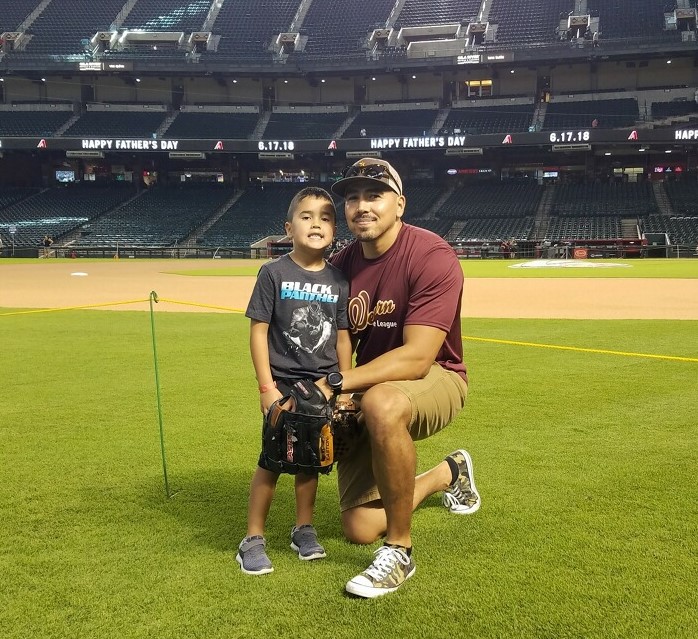Acknowledging the Men Who Will Raise My Son
My son, Christopher, is the most fun-loving, enthusiastic, motivated, eager, caring, person that I know. He is up for anything and always in the moment. It is beautiful to see how present he is to himself and his environment. This is his first year of school and I have a confession … I feel terrified.

I feel completely helpless when I come home from work each day. I see the world around him reflected in his actions, expressions, words and ideas. I feel helpless about what he is absorbing. I am worried because I know how he eventually defines his vision of manhood will be a mix of my influence and the influence of many other boys and men – all of them teaching and reinforcing their own views of how boys are supposed to be, feel and act.
I want my son to experience love, respect and support. I want him to be able to be his authentic self. I want him to be free to express his manhood however he feels most appropriately represents him. With intention and dedication, I can give him that at home. Outside the walls of the loving, supportive home we strive to create and maintain, I rely on the men and boys in our community. The men and boys who will inevitably shape my son’s view of manhood, women and girls.
Just acknowledging my dependence on them makes me feel vulnerable and pushes me outside the Man Box. The Man Box instructs “always be in control,” “don’t show weakness,” and “don’t ask for help.” Those rules keep me disconnected from other men and boys in my community. They don’t allow space for us to talk about our sons and our hopes for their lives. Those rules set us up for failure by creating an ideal standard for manhood – one that won’t necessarily allow my son to be strong and emotional, to be into sports and art.
I don’t want to feel the disappointment and pain that accompanies rejection or bullying – especially when it is directed at my son. So I am afraid. What if the men in my community don’t value love, respect and support like I do. Or worse, what if they – like so many of us – have been socialized to live resolutely inside the Man Box.
The thing about the Man Box is that it not only dictates what it means to be a man. It informs how men and boys should view women and girls – as property, objects and as having less value. The teachings of the Man Box allow epidemic level violence and discrimination against women and girls to persist.
Individualism is a mechanism that keeps violence against women in place. If we can compartmentalize violence against women to the problem of individual men, then individual solutions and accountability seem appropriate. When we men don’t collectively view ourselves as a part of the problem of violence against women then we don’t feel compelled to be part of the solution. This is not an indictment of men but rather, an invitation to look critically at how we are all socialized to view women in negative and demeaning ways. It’s up to us to identify ways to help end the violence and discrimination that women collectively experience from men in their lives.
Men must model, teach and reinforce healthy, respectful manhood. We can embrace and support our sons’ expressions of manhood. We can encourage authentic friendships between men and hold each other accountable when we fall short. As we redefine manhood, we will create greater community safety for women, girls and those who might not conform to gender – and for our sons.
Individual change and community change go hand in hand when addressing violence against women. Want to get involved? First, learn more about the Man Box and its rigid rules for manhood. Next, take an honest look at how you might have internalized those rules and acted them out into the world in your relationships and community. Then, start to offer and receive different messages about what it means to be a man.
The benefits are significant. Collectively, the people in our lives will experience a version of manhood that creates physical, emotional and psychological freedom rather than creating risk. My son won’t receive an education about manhood that leaves me feeling helpless and fearful. Rather than feeling limited in my relationships with other men and boys, I will feel connected to them. I will feel emotionally safer and my hope is that the men and boys in my community would feel the same.
Christopher Guerrero, A Call To Men Trainer